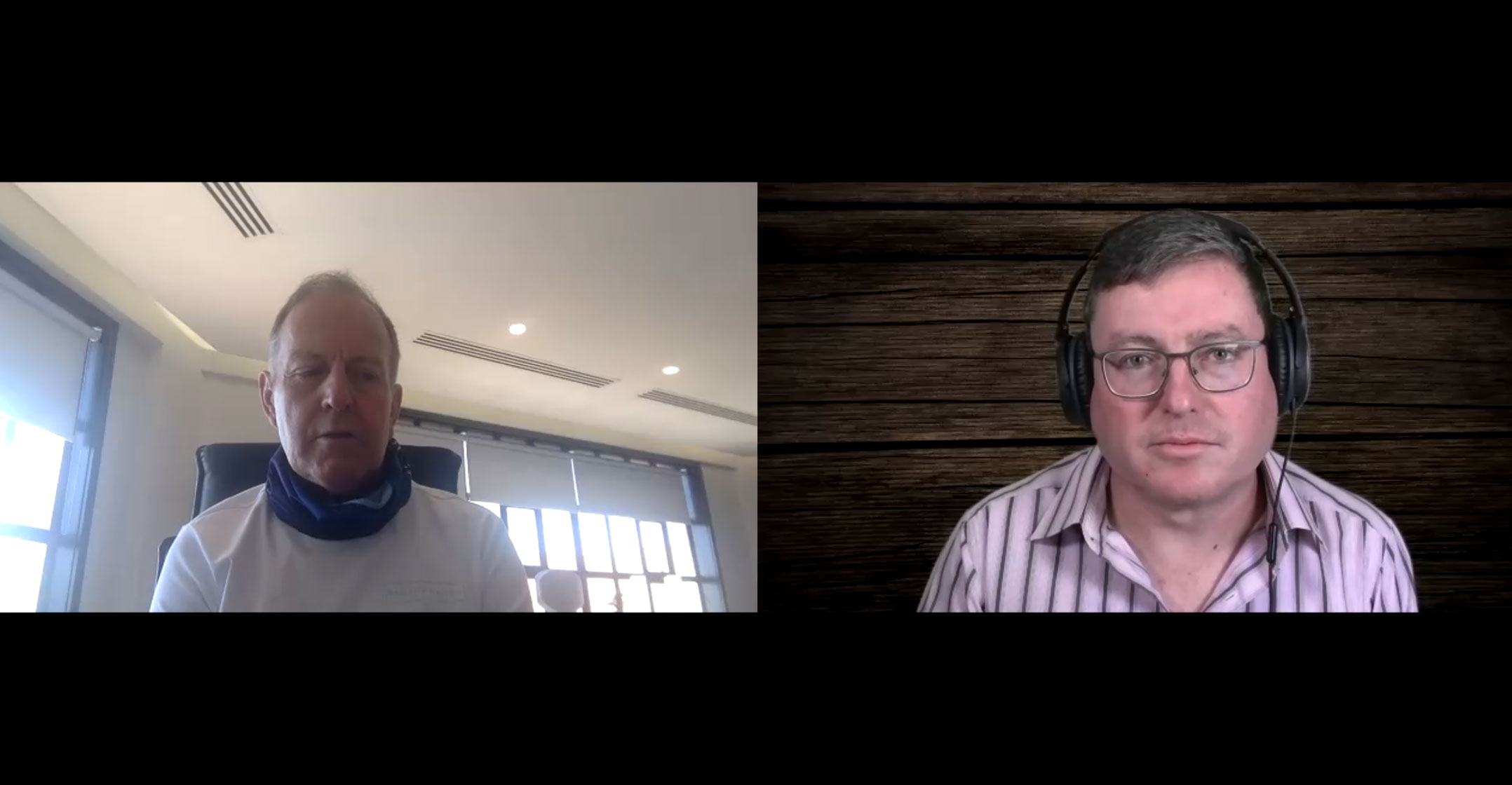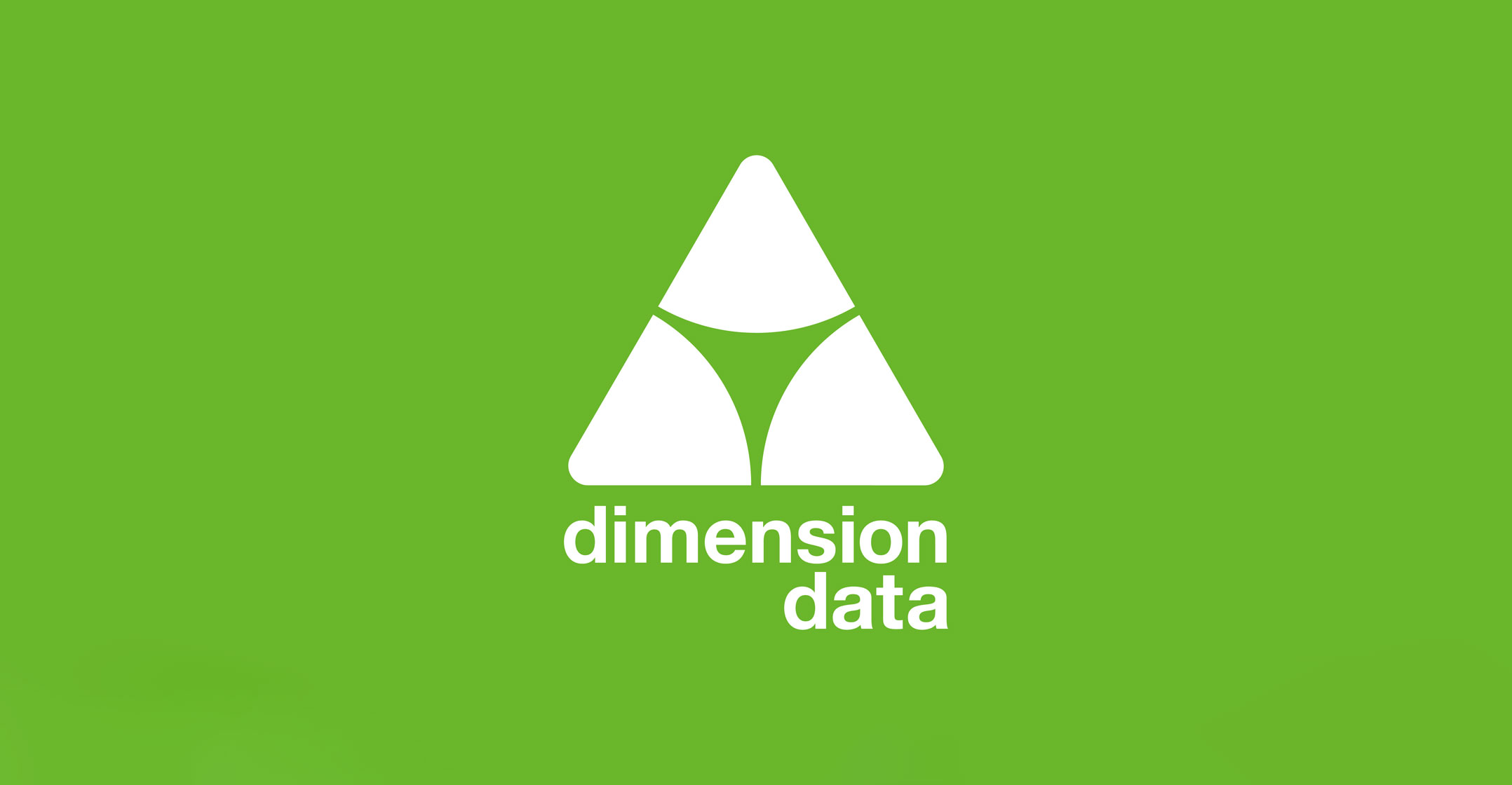
Dimension Data this week concluded the consolidation and restructuring of its business, merging into “One Dimension Data” and doing away with legacy but well-known brands such as Internet Solutions and Britehouse.
The group, founded in 1983 and listed on the JSE in 1987, has lived through dramatic times, including the end of apartheid and the dawn of democracy; the 1990s IT spending spree ahead of the Y2K “millennium bug”; and the dot-com bubble and subsequent crash.
TechCentral editor Duncan McLeod sat down over an Internet video call with co-founder and executive chairman Jeremy Ord for a wide-ranging discussion that touched on everything from the aftermath of the 2001 technology crash, and the dire consequences for Dimension Data, to endemic corruption in South Africa’s IT industry. What follows is a shortened and edited version of that conversation.
Duncan McLeod: Despite the Covid-19 pandemic and the lockdown, 2020 has been a very busy year for Dimension Data. The group, with its parent NTT, has just announced plans to build a huge data centre here in Johannesburg. There’s also been, of course, a big refocusing and restructuring that’s led to some well-known names, including Internet Solutions and Britehouse, disappearing from the South African technology landscape. It must have been a difficult decision to do that, to get rid of those brands. What eventually made you decide to formalise everything under the Dimension Data brand?
Jeremy Ord: As we’ve grown as a group, we’ve tended to think of them (the brands, like Internet Solutions and Britehouse) as completely different vehicles in terms of how they’re addressing the market. But one of the biggest complaints from our client base has been to say that we have 10 sales guys coming in from Dimension Data – “which is great, you’re all lovely people, etc” – and then we have five architects following each of those 10 salesmen and it tends to get to be a bit of clutter. So, it took us a long time, and we listened and listened and listened to our client base, and eventually made the decision that there was an overlap. It wasn’t cohesive enough.
We are able to offer a comprehensive suite of solutions to our client base, but we were a bit haphazard about doing it. It did us take a long time, and obviously there are lots of personalities involved and lots of vested interests and lots of people who are loyal to Internet Solutions or Dimension Data or Britehouse or whatever it was, so you had to go through that… But eventually the realisation came to us that we would improve our returns and improve our customer penetration and we’d give a very much more focused service to the client base, who are ultimately the people who pay our salaries every month, if we did this.

So, that decision was made, and we announced it end of February or early March, and then we started the process, which went on without delay throughout Covid. Unfortunately, in the process we got rid of about 480 people. That is always hard, because they’d been with us forever and were good people, but we had to rationalise in terms of the duplication and back-office systems.
That process is now finished. The next step is formally introducing One Dimension Data, the concept, how we’re going to serve our clients, how our back office will operate and, most importantly, how we will go to market.
McLeod: What impact has Covid-19 and the associated lockdown had on Dimension Data?
Ord: For everybody, Covid was a shock, but it came with a whole lot of opportunity. And when we go to our clients and we talk about the digital world and we talk about moving to a digital type of environment, what we tended to find was almost a blank stare, people looking at us and saying, “What do you mean by digital, how do we become digital?” And this is a great example: We sell video-conferencing equipment and solutions and concierge services and all that stuff, and we go to a lot of clients and they look at us and say, “We don’t want a video conference, we want to fly to Cape Town for that one-hour meeting … and we like that way of life and the company’s expense budget on travel alone, yes, it’s massive, but you could never bring that under control because people will find excuses to get to some place for a meeting because they enjoy it.”
So, then along comes Covid, and people have to think about working differently. Suddenly, overnight, everybody was talking on video conferencing… A bunch of my friends, who are more golfing friends than anything else, I didn’t think they even knew how to switch on a computer, but suddenly they were experts (at Internet video calls). Every night, there was a chat and a whisky, or whatever they wanted to do, and that was the real first experience that a lot of people had with digital. They suddenly thought, “Wow, this is actually not so bad, it works quite well.”
Our business continued throughout the Covid period but the challenge we face is getting people back to work, frankly. We are a collaborative company where interaction leads to ideas. We really do believe in people getting together and working together and having that interaction.
So, there have been many pluses and minuses about it. But overall, we have survived, and we have had the reduction in size from a people point of view, we’ve had the new opportunities because of the digital demand and remote work.
Our large customers certainly have continued to buy systems and solutions from us because they have so many people working remotely. Small businesses are the ones I fear for. They are the ones that may struggle going forward, but hopefully they have embraced the digital environment completely or they can make that transition quickly because I think that’s really going to be one of the keys to success going forward.

McLeod: You mentioned the fact that you want to get people back to work. How do you see Dimension Data’s workforce working post this pandemic? will everyone be back at the office some time in 2021 or will remote work become a permanent feature of your organisation?
Ord: I have a grandson, he’s two and a half. He was so excited to go back to school because there he’s got people his own age there. Certainly, people I work with are missing the interaction, they’re missing that personal touch.
People will think this is the way forward and that this is the way we are going to live forever. However, I do believe that it will slowly go back to almost like the norm that we are used to. People are saying this is going to change the way we work forever. It may well do that, and there will be those who say it’s much better for me to work from home, but then the expectations may change. Companies may say, “Hey, this guy’s working from home; he is no longer using the space we got for him, he’s got telephones, he’s got secretaries, he’s got all kinds of people around him… Are we justified in paying him the salary we are, even though they say their productivity is higher? Is it higher? Certainly, as a company we can work remotely from anywhere, but I don’t know what companies are going to say when it comes to increases and all the other things that go with that if those people are not there.
You might have new employees you never ever meet – I think that’s bad; that cannot be a good thing. Also, those people that you haven’t seen for a year, eventually you forget about them… They may well be at risk because “out of sight is out of mind”.
McLeod: Jeremy, I think I first met you back in 1995 at your old campus in Epsom Downs — the cricket oval. Dimension Data has been through some really good times and some pretty awful times in those 25 years. You listed the business in London around the turn of the millennium, which was also around the time of the dot-com bubble bursting. The late 1990s were the group’s halcyon days. The margins were excellent, and everyone was investing big money in IT and networking gear. But things got tough after the turn of the century. Looking back at everything that has happened since the London listing, what would you have done differently with the benefit of hindsight?
Ord: From mid-2001, the market changed dramatically. Firstly, CEOs and CFOs – people who had been totally disinterested in IT – became interested. It became a major cost factor for them and so companies started looking at IT differently. It was almost a blanket freeze across the world in terms of IT spend. We’d oversold everything in the run-up to Y2K and every one of us in the industry was guilty of that.
Then came the middle of 2001, and suddenly there was no business! Firstly, your margins, if you looked at your traditional Cisco hardware, you were running at a gross margin of about 50%. You went from 50% to 15% almost overnight and suddenly you had to rationalise the way you did business. None of us really had any idea about how to deal with that. A lot of people who were in the IT industry just left the sector or sold their businesses and got out. Fortunately, our executives decided, to a man, that they wanted to stay and make it work. It was a tough time. We had a workforce of about 11 000 people in those days. We had to reduce that by 3 500.

We paid US$400-million for a company in the States (Proxicom). We were in a bidding war with Compaq. I remember phoning the owner (of Proxicom) on a Sunday morning, wherever he was, and said to him, “Here’s our offer.” We trumped the Compaq offer, but the rest is history. We paid $440-million or something like that. Literally three years later we sold that business for $10-million. Even when we were doing the due diligence, the guys were saying the sales were down, but they’ll come back. We believed them.
It was a tough time. We went back to our knitting, we went back to basic infrastructure, looking after our clients’ networks and stuff like that. From 2003, we had to start building this business again. And with a different mindset. We were working at much-reduced margins and we had to look at efficiency and productivity, how we could automate more than in the past. And the IT industry was now characterised by CEOs and CFOs and CIOs all understanding exactly what was going on in the tech industry and where the margins were.
That evolved. The Internet was becoming a major factor and many new companies emerged out of the debris of Y2K. 2008 came, the markets contracted again. We were listed in London and Johannesburg.
We had made an application to list in London in 1998. We got rebuffed and rebuffed and rebuffed by the government. Then came the fateful day. We had one day left to make up our minds. I put a call through to Maria Ramos (national treasury director-general at the time) and she said we had the approval to go to London. We raised a lot of money. We went into the FTSE 100 straight away. Then a year later, almost to the day, everything crumbled. The markets had collapsed. It was a very tough situation.
Out of the blue, in 2008 we got a call from NTT (Japan’s Nippon Telegraph & Telephone Corp). They came to South Africa, we met with them. From the word go we impressed on them that we didn’t want to sell and, if we did, this was a people company — people make things work here. To their credit, they listened. They made an offer, which we said we wouldn’t even consider.
A year later, they engaged with our two major shareholders and they (the shareholders) said it was an incredible offer for where the market was at the time and they felt it was time to sell. It was a tough time for the management team. We still didn’t want to sell. We opposed it all the way.

But I had a really good relationship with the NTT CFO, who subsequently became CEO. I said to him, “You can’t mess with the people, you can’t mess with the culture, because if you do you will be buying nothing.” And he listened to us completely. For the next eight years, we ran it like that.
In 2019, the decision was taken to put Dimension Data together with NTT Communications outside Japan and rename everything as NTT, leaving the Dimension Data name in Africa. NTT has no brand name in Africa at all and Dimension Data does. That’s the way it’s been operating ever since. Jason Goodall (the global CEO) is now in London; I came back to South Africa.
We were having discussions with NTT about doing things in Africa where they’d still retain a shareholding in the African operation. However, we have BEE requirements, etc. That’s on hold now because of Covid. NTT had to redo their five-year plans. But they have been good about the BEE requirements for South Africa and those are becoming increasingly onerous and we need to be part of what is happening in the country or we will struggle to win business.
McLeod: You could have lived anywhere else in the world. What is your take on South Africa today? Are you still optimistic about the country’s future and, if you are, why?
Ord: “Optimistic” is a difficult word. I think “realistic” is what we have to be right now. In our industry in the 2000s to 2010 and later, the amount of corruption in the IT industry was just terrifying. There were really strange companies getting a lot of business. You start to wonder, what is going on? You just knew there was underhanded stuff going on. Until such time as one feels comfortable that corruption is out of the system, I really worry about South Africa.
There is an opportunity for South Africa to leapfrog because, although our education system is really struggling, we can use technology to make tremendous inroads… We do have the opportunity to upskill people, but I worry about the lack of basics – I worry about the water issues, electricity. Where’s the will to make things happen? The PPE (corruption problem) is a great example. I’m amazed how quickly the money was gone. I’m trying to be realistic and I’m trying to be positive but, boy, it’s a big mountain to climb.
I also don’t understand how we can rescue an SAA. And I don’t understand why state-owned companies don’t get competent management. If you have competent people, you make any bad situation work.
McLeod: How should the IT industry deal with corruption?
Ord: When we were listed in London, if you got caught up in corruption, it was me as the CEO or me as the chairman, we were the ones who were liable and we would be the ones to go to jail. That’s the only way to stop corruption. People have to go to jail.
We recently responded to a very small tender for the government, some consulting work for one of the departments, it doesn’t matter which one. Our quote was R2-million. The most expensive quote was for R97-million. There were 12 bidders. Only two of those were IT companies. The rest were a pet shop and a garage and all kinds of stuff. Those type of things must disqualify you immediately. You need checks and balances.
McLeod: If you had the opportunity to talk to President Cyril Ramaphosa for five minutes and he asked what two or three things you would like to see done that would have a meaningful impact on South Africa’s trajectory as a nation, what would you tell him?
Ord: I think education is the first thing. It’s at the core of what we need to do. And surround yourself with really clever people. You have to surround yourself with bright people who want to make it work. Unfortunately, there are too many vested interests in South Africa. You cannot have the sort of brain drain you have at the moment. You need to allow people to be entrepreneurial. Put the right management into the state-owned enterprises and give them the mandate to grow those businesses and create employment. With intelligent people running the SOEs, you can get on top of the issues. It’s always a people issue.
At the end of the day, you can’t be a consensus leader. You can sit back and be a consensus leader because of party politics, but it doesn’t help the state of mind of the people of the country — and that’s the difficulty.
McLeod: What is your take on the ICT sector in South Africa today? Are local system integrators still as important as they once were, what with hyperscale cloud data centre operators like Microsoft and Amazon Web Services coming into this market? Do these developments change the dynamics?
Ord: You have the hyperscalers and they have a big influence on the market. On the other hand, you have a massive growth in data. Getting results out of that data is still in its infancy and we see huge opportunities.
But the market has also been characterised by a lot of opportunists, if I can put it that way – people who came to market, cobbled together a whole bunch of companies, got corrupt, got into trouble, disappeared along the way.
If you look back at the late 1980s and early 1990s, we had incredible computing skills in South Africa because of isolation and apartheid. We have lost those skills to a large extent.
Where do I see the industry now? Probably less characterised by large system integrators like ourselves, but there are a lot of smaller, niche operators. The question is, do people want to go to niche operators or do they want a more comprehensive, one-stop shop? We are betting that the larger users will want one integrator to help them run their businesses. Because of the lack of skills, there will be a lot more cooperation between companies like ourselves and large corporates – perhaps even joint ventures.
If you look at the kids coming out of schools and universities, they think differently. Everyone is developing an app now. Some of those apps are really going to make it. A lot of smaller players will come up with unique things, and they will have global traction. There is opportunity, but some of the less honest companies will go by the wayside.
McLeod: So, if you were a youngster coming into the market now in 2020, Jeremy, you’d still consider launching an IT company?
Ord: Yes. There is so much opportunity. If you understand what you can produce for companies, there is a massive market opportunity. If you can find that gap, you will make it. — © 2020 NewsCentral Media




